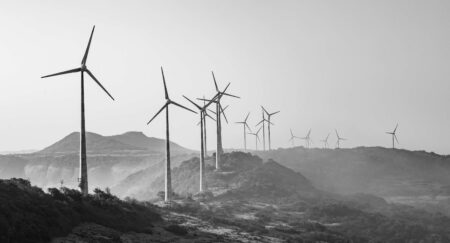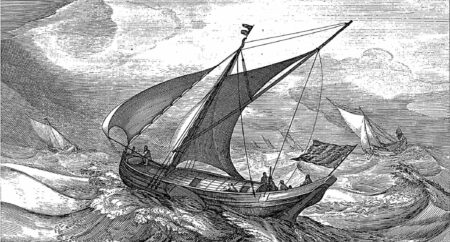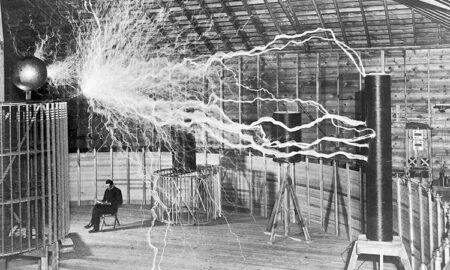The achievements of women in STEM fields are often obscured or indeed unknown.
We are taught very little about female scientists. You probably know a handful of names from the past, maybe Marie Curie, but are likely not aware of the history and overall impact of women in science. It is important we champion their successes and shed some light on the difficulties women face when pursuing STEM careers.
There is a long history of discrimination in science. Women had to fight a ban which stopped them studying STEM subjects. The legacy of this ban is illustrated by fact that science continues to be staggeringly male dominated. There are encouraging signs, for example in environmental and ecological science a high number of graduates are women. However, female participation in STEM subjects generally remains low. Data from universities revealed that across the 2017/18 UK student populus, only 35% of the STEM students were female.
Despite this gender imbalance, women in STEM have made a big impact on our lives. We are going to showcase a small number of these noteworthy women who work in environmental science.
Sandra Pascoe Ortiz
Professor Ortiz developed a non-toxic substitute for plastic packaging from the juice of a cactus.

In 2013, engineering students presented an audience at a science fair with a quirky idea. The idea? Turning a prickly cactus into smooth plastic packaging. The students couldn’t follow through on their idea but onlooking professor, Sandra Pascoe Ortiz, was inspired.
Since the fair, Ortiz has blended thousands of cactus leaves in her lab, trying to perfect her experiment. She hopes to make the cactus juice, normally a popular drink in Mexico, into biodegradable packaging.
The process of making this plastic substitute is as simple as it is ingenious. Ortiz takes her juice and warms it up in the microwave. Once warm, it is added to a second blend. This blend includes all natural and non-toxic ingredients, such as animal fats. After drying out, the mixture is ready to be transformed. Ortiz has made all sorts of fun products with it including children’s toys.
The fun toys, however, are not the best part of this discovery. When the cactus becomes trash it performs a magical disappearing act. When buried in soil it will only takes a month to dissolve, in water, where much of our plastic ends up, it will biodegrade in days. Also, turtles and other marine life can eat it without harm.
Hopefully in the near future our cosmetic products will be wrapped in biodegradable packaging from the cactuses of Mexico.
To monitor her progress and get updates on her research follow Sandra’s Research papers.
Sherri Mason PH.D.
Sherri Mason’s freshwater research is a game changer in our understanding of plastic pollution.

To understand the vast scale of the climate crisis we must look at the small details. In the case of plastic waste, this means addressing the problem of microplastics. The truth is that microscopic fragments of plastic pervade our freshwater systems including the most remote lakes in the world.
After finding plastic in America’s Great Lakes, Mason analysed samples of the bottled water we drink. These samples showed bottled water also contained plastic. This is concerning because this water is put through a purification process to remove harmful components. So, as we allow plastic waste to build up, we are putting our health at risk.
The main culprit of this plastic waste is likely microbeads. These are small pieces of plastic no bigger than a few millimetres in length. They are used in cosmetic products like exfoliating scrubs.
Mason’s discovery means that soon we might never see these microbeads in our products. After publishing her research, the US government passed a law banning the manufacturer of this tiny plastic. Other countries followed suit and over 400 companies have promised to remove them from their manufacturing processes.
You can discover more about Dr Mason’s freshwater research and her recent findings by going to her 犀利士 /www.sherrimason.com/”>personal website.
Rose M. Mutiso
Rose M.Mutiso is a leading energy activist and was shortlisted for Pritzker’s Emerging Environmental Genius Award.

Rose M. Mutiso is using her skills and passion for STEM to stand up for her native continent.
The transition to net zero is the target for most countries around the world. However, as Rose M. Mutiso states in her TED talk, it is important to understand that each country is starting this journey from a different place. Many nations across Africa don’t have access to a reliable supply of energy. Without this energy it has been impossible for them to sustain new business ideas and industry. So, as we move to net zero, we must do it in a way that addresses economic inequality.
Mutiso has started the conversation. As the research director of the non-profit, Energy Growth Hub, she has helped kickstart numerous projects including Net Zero Africa and Reframing Climate Justice. The Reframing Climate Justice project is of fundamental importance as it amplifies the voice of poorer nations within the global climate debate.
To illustrate the urgent need for this reframing, we just need to look at which countries are driving global emissions – in one day, the average US citizen will produce more carbon than a citizen of the Democratic Republic of Congo will produce over a whole year. This imbalance shows that the onus is on the developing world to tackle emissions, whilst supporting other nations in building a sustainable energy system.
If you want to find out more about Rose and the work of her non-profit visit the website.
Wangari Maathai
Wangari Maathai was given the Nobel Peace Prize for her advocacy of women’s rights and sustainable living across Africa.

Before we had African scientists like Rose M. Mutiso making changes, we had trailblazers like Wangari Maathai. Also hailing from Kenya, Maathai, who sadly passed away in 2011, left a great legacy for new environmentalists.
After an incredible graduate academic career spanning several countries, she became the first woman to hold a teaching position in the Veterinary department of the University of Nairobi. From that platform she started her work in advocating for the environment, launching a scheme which helped women plant trees in their local villages.
This scheme snowballed from a local movement to one that crossed many borders. The Green Belt Movement today continues to work with Africans in different rural areas. Currently it is supporting over 400 communities in the fight to conserve and protect their woodland.
For her life’s work and commitment to environmental science Maathai was honored with the Nobel Peace Prize in 2004.
You can read a longer biography of Wangari on the Green Belt Movement’s website, also you can see the latest news from their many projects around Africa.
How can you get involved?
If you are inspired by these women and want to see more opportunities for women in STEM, here are ways you can help!
Keep sharing women’s stories
Sadly we can’t mention all the women in STEM who are making an impact on climate change. But hopefully we can encourage you to speak out. If you know a female scientist that is doing special work make sure you let people know!
Understand your bias
Younger women are reluctant to dedicate themselves to a career in STEM because they don’t see many women in front them. Not enough women are in visible positions in science and this lack of advancement discourages the new generation. So, if you work or are a leader in a scientific institution make sure you are aware of any bias that you may have.
For more information on STEM careers and the women in the blog, check out these resources below:
https://www.stemwomen.com
https://www.greenbeltmovement.org/wangari-maathai
https://eos.org/opinions/eight-ways-to-support-women-in-science
https://www.sherrimason.com/videos
https://www.energyforgrowth.org/






